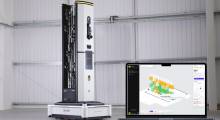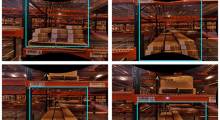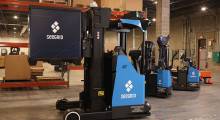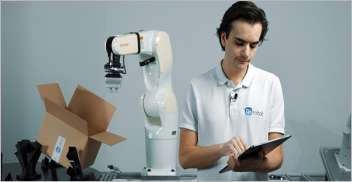Food preparation robot provider Chef Robotics recently announced the launch of its flexible, scalable, AI-enabled robot arm.
Headquartered in San Francisco, Calif., Chef said its robots have been made to help companies in the food manufacturing industry overcome global labor shortages and increase production volume.
Flexible robots needed for high-mix environments
Chef Robotics said AI will have an immense impact on our world, as the rise of foundational models and generative AI like ChatGPT has shown. But, the company believes the greatest impact will be on the physical world in the form of embodied AI through robotics.
Automation is already a part of the food industry. But Chef said robots have been built to automate one specific task each, not making them flexible enough to deal with the variety of products in high-mix production environments needed to make meals.
To help address a lack of flexibility, Chef is leveraging mostly off-the-shelf hardware and combining it with its AI platform to make it flexible enough to provide labor supply in the form of robotic automation to help food companies overcome their labor shortages. The robots operate using Chef's original food manipulation software, ChefOS.
Training AI on 20 million real-world meals produced
Unlike other robotics startups in the food and beverage industry, Chef's go-to market is food manufacturing - not restaurants - where the company can partially automate a food operation and add value in production to customers without requiring 100% full autonomy from the get-go.
This strategy can enable Chef’s engineers to train ChefOS on real-world data accumulated from robots deployed at customer production sites in six cities across North America. To date, Chef has already completed over 20 million servings in production.
With every meal the robots assemble in production facilities, Chef's core AI models for food manipulation improve. The robots act as data ingestion engines to train Chef's AI models, adapting to variances in food, which the company said will allow its robots to plate almost any ingredient, of any portion size, in any container over time.
As the AI that powers Chef's robots becomes more and more autonomous, the company said it plans to leverage these systems to go from applications like industrial food production to ghost kitchens and ultimately, to deploying AI-enabled robots in every commercial kitchen in the country.
“Nobody has scaled intelligent robots at a massive scale,” said Rajat Bhageria, Chef Robotics founder. “Just as Tesla ushered in the EV revolution, so too are we posed to help usher in the intelligent robotics revolution.”
Customers report increased capacity by adding robots
Today, Chef's AI-enabled robots are actively generating ROI for food industry manufacturers. Public customers that Chef has case studies with include: Amy's Kitchen, Sunbasket and Chef Bombay.
“We increased our capacity by just adding four Chef robots by just over 20%.” said Noorudin Jiwani, Chef Bombay president. Chef Robotics helped Chef Bombay reduce standard deviation by 30%, reduce food waste by 88%, increase labor productivity by 33%, and increase throughput by 9%.
Article topics
Email Sign Up
















